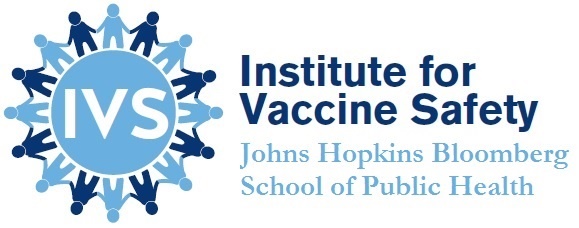Do Vaccines Cause Diabetes?
Conclusion | Epidemiological Evidence | Proposed Biological Mechanism | Archives | References
Conclusion
Vaccines currently routinely recommended to the general population in the U.S.* do not cause diabetes.
Epidemiological Evidence
The 2012 report by the Institute of Medicine (IOM) [1], now called the National Academy of Medicine (NAM), described a number of studies with sufficient validity and precision that all reported a lack of an association between MMR, DTaP or Tdap vaccines and type 1 diabetes [2-7]. Studies published since this report also reported a null, or in some cases even protective, association between vaccination and type 1 diabetes [8-12]. Studies examining inactivated seasonal influenza vaccination in pregnancy reported either no association with, or even a possible protective effect against, gestational diabetes [13, 14].
Persons with chronic illnesses such as type 1 or type 2 diabetes have high morbidity and mortality associated with common infectious diseases such as influenza, hepatitis b, and pneumococcal disease. Thus, routine vaccination per current ACIP recommendations is also strongly recommended for all persons with diabetes by the American Diabetes Association [15, 16]. In addition, the ACIP recommends the administration of hepatitis b vaccine to all unvaccinated adults with diabetes mellitus aged 19 through 59 [17].
Proposed Biological Mechanism
Mechanisms that may induce type 1 diabetes include activation of the complement system, in which a cascade of proteolysis and successive release of cytokines functions to amplify the immune response but can damage host cells if not properly regulated, as well as molecular mimicry, which refers to the possibility that similar epitopes shared between self-peptides and foreign peptides (introduced via infection or immunization) inadvertently cause the activation of autoreactive T or B cells, leading to autoimmunity. However, the IOM concluded that there was no mechanistic evidence for an association between vaccination and type 1 diabetes, as the publications reviewed provided no evidence beyond a temporal association [1].
References
1. Institute of Medicine. In: Stratton K, Ford A, Rusch E, Clayton EW, eds. Adverse Effects of Vaccines: Evidence and Causality. Washington (DC): National Academies Press (US); 2012.
2. DeStefano F, Mullooly JP, Okoro CA, et al. Childhood vaccinations, vaccination timing, and risk of type 1 diabetes mellitus. Pediatrics 2001;108:E112.
3. Klein NP, Hansen J, Lewis E, et al. Post-marketing safety evaluation of a tetanus toxoid, reduced diphtheria toxoid and 3-component acellular pertussis vaccine administered to a cohort of adolescents in a United States health maintenance organization. The Pediatric infectious disease journal 2010;29:613-7.
4. Altobelli E, Petrocelli R, Verrotti A, Valenti M. Infections and risk of type I diabetes in childhood: a population-based case-control study. Eur J Epidemiol 2003;18:425-30.
5. Blom L, Nystrom L, Dahlquist G. The Swedish childhood diabetes study. Vaccinations and infections as risk determinants for diabetes in childhood. Diabetologia 1991;34:176-81.
6. Hviid A, Stellfeld M, Wohlfahrt J, Melbye M. Childhood vaccination and type 1 diabetes. The New England journal of medicine 2004;350:1398-404.
7. Patterson CC. Infections and vaccinations as risk factors for childhood type I (insulin-dependent) diabetes mellitus: a multicentre case-control investigation. EURODIAB Substudy 2 Study Group. Diabetologia 2000;43:47-53.
8. Chao C, Klein NP, Velicer CM, et al. Surveillance of autoimmune conditions following routine use of quadrivalent human papillomavirus vaccine. J Intern Med 2012;271:193-203.
9. Duderstadt SK, Rose CE, Jr., Real TM, et al. Vaccination and risk of type 1 diabetes mellitus in active component U.S. Military, 2002-2008. Vaccine 2012;30:813-9.
10. Hummel M, Fuchtenbusch M, Schenker M, Ziegler AG. No major association of breast-feeding, vaccinations, and childhood viral diseases with early islet autoimmunity in the German BABYDIAB Study. Diabetes Care 2000;23:969-74.
11. Black SB, Lewis E, Shinefield HR, et al. Lack of association between receipt of conjugate haemophilus influenzae type B vaccine (HbOC) in infancy and risk of type 1 (juvenile onset) diabetes: long term follow-up of the HbOC efficacy trial cohort. The Pediatric infectious disease journal 2002;21:568-9.
12. Karvonen M, Cepaitis Z, Tuomilehto J. Association between type 1 diabetes and Haemophilus influenzae type b vaccination: birth cohort study. BMJ 1999;318:1169-72.
13. Kharbanda EO, Vazquez-Benitez G, Lipkind H, Naleway A, Lee G, Nordin JD. Inactivated influenza vaccine during pregnancy and risks for adverse obstetric events. Obstet Gynecol 2013;122:659-67.
14. Naleway AL, Irving SA, Henninger ML, et al. Safety of influenza vaccination during pregnancy: a review of subsequent maternal obstetric events and findings from two recent cohort studies. Vaccine 2014;32:3122-7.
15. Vaccination Practices for Hepatitis B, Influenza, and Pneumococcal Disease for People With Diabetes. The Diabetes Educator 2014;40:122-4.
16. Standards of Medical Care in Diabetes-2016 Abridged for Primary Care Providers. Clinical diabetes : a publication of the American Diabetes Association 2016;34:3-21.
17. Use of hepatitis B vaccination for adults with diabetes mellitus: recommendations of the Advisory Committee on Immunization Practices (ACIP). MMWR Morbidity and mortality weekly report 2011;60:1709-11.
